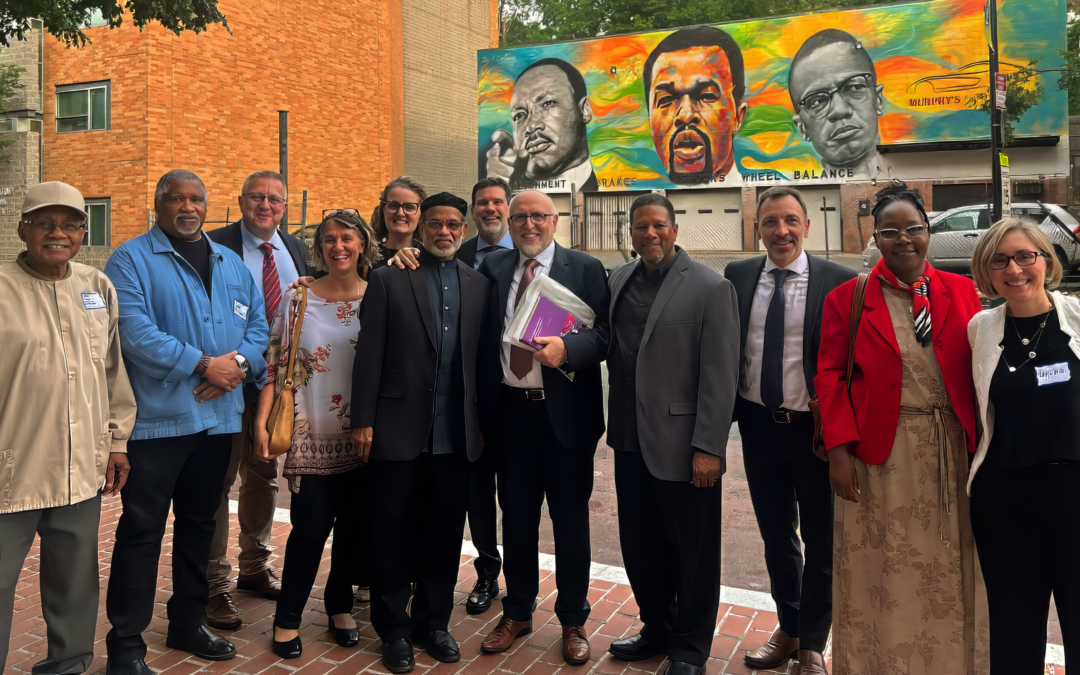

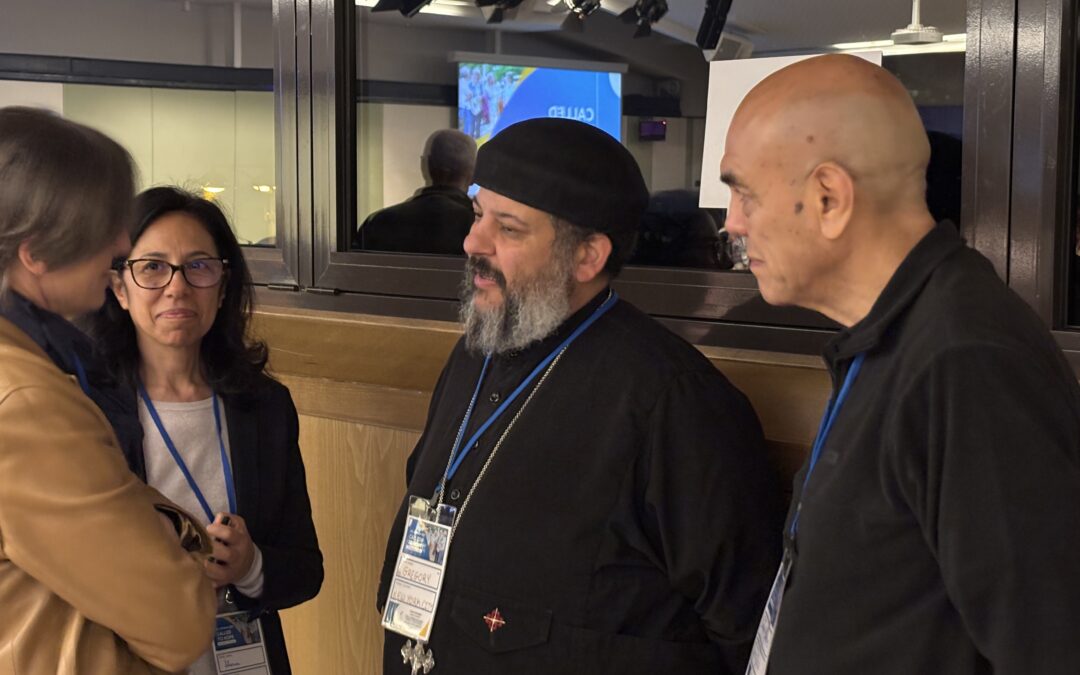
A path that unites us
An Easter of hope but above all, an Easter to be lived together. In this year 2025, which marks 1,700 years since the Council of Nicaea, Christian Churches will celebrate Easter on the same day: Sunday, 20th April.
This is a wonderful coincidence that calls all Christians to take a decisive step toward unity—a call to rediscover ourselves as united in plurality.
In an age marked by divisions on every front and especially at this time that brings us closer to the mystery of the Resurrection, we would like to share what Chiara Lubich said in Palermo in 1998 about “A Spirituality for Dialogues”, specifically an “ecumenical spirituality.”
It is a direct invitation to respond to the call of mutual love, not as individuals, but together. It is an opportunity to look upon the Jesus Forsaken on the cross as a light which, even in the ultimate sacrifice, not only leads us but becomes the sure pathway along which we can take our steps.
Enable subtitles and select your preferred language.
Photo: © Carlos Mana – CSC audiovisivi
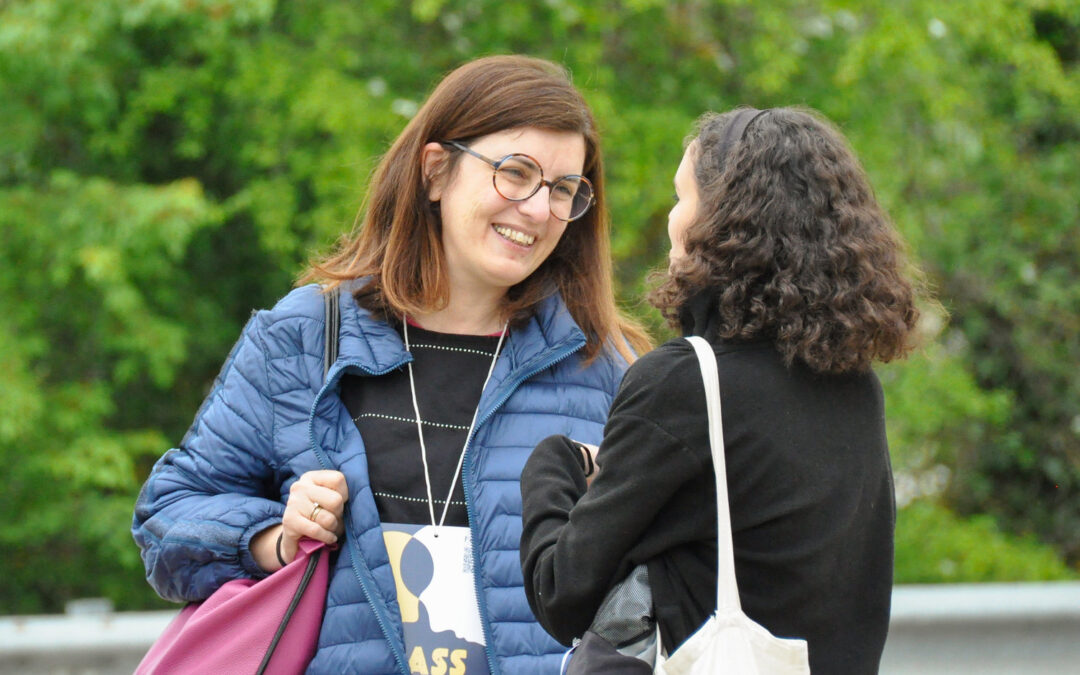
Dialogue: a path to search for what is good
Sometimes we are faced with situations where it is difficult to make a judgment or take a clear position. Wetry to understand the deeper meaning of whatever we are facing and comprehendits significance andvaried perspectives.
We need a light to guide us. Just as underground miners move forward one meter at a time with the help of a simple lantern, we too have a light that can illuminate our steps, one by one. We know what this is: love for each other is a powerful light that guides us and helps with the difficult task of informing our personal consciences as we journey through life.
We need to be able to be aware of the complexity of views and opinions held by people around us or those we meet sometimes by chance. It is important to always maintain a sense of honesty and to be aware of the limitation of our own point of view. Openness of mind and heart, the fruit of true love, creates a capacity for a dialogue that listens, that looks for the good in the other person and is open to the possibility of creating something together.
Timothy Radcliffe, one of the theologians present at the last Synod of Bishops of the Catholic Church, referred to this personal need we may experience. He told members of the Synod that: ” The bravest thing we can do is to be honest with each other about our doubts and questions, those for which we have no clear answers. Then we will approach each other as fellow seekers, beggars of truth (1)”.
In a conversation with members of the Focolare, Margaret Karram commented on this reflection: ‘Thinking about it, I realised that many times I did not have the courage to really say what I thought: perhaps because I was afraid of not being understood or because I didn’t want to be different from the majority. I realised that being “beggars of truth” means having that attitude of closeness towards one another, in which we seek the good of the other.”(2).
This is Antía’s, experience. She is a member of “Mosaico”, a performing arts group that began in Spain in 2017. It is composed of young Spaniards from different backgrounds and cultures who use their art and workshops to offer their experience of fraternity to others. Antia tells us: ‘It connects with my values – a fraternal world, in which everyone (very young, inexperienced, vulnerable…) gives their contribution to the project. “Mosaico” makes me believe that a more united world is not a utopia, despite the difficulties and hard work involved. I grew up working in a team where dialogue was too honest at times and I often gave up on my own ideas which I believed to be the best. I see that in this project “good” is built piece by piece together, by us all ” (3).
1. Timothy Radcliffe, Meditation to Synod of Bishops, 2.10.2023
2. Margaret Karram, President of Focolare Movement, 3.02.2024
3. Mosaic GRLP
Foto: © Comunicazione Loppiano
THE IDEA OF THE MONTH is currently produced by the Focolare Movement’s “Centre for Dialogue with People of Non religious Beliefs“. It is an initiative that began in 2014 in Uruguay to share with non-believing friends the values of the Word of Life, i.e. the phrase from Scripture that members of the Movement strive to put into practice in their daily lives. Currently, THE IDEA OF THE MONTH is translated into 12 languages and distributed in more than 25 countries, with adaptations of the text according to different cultural sensitivities.
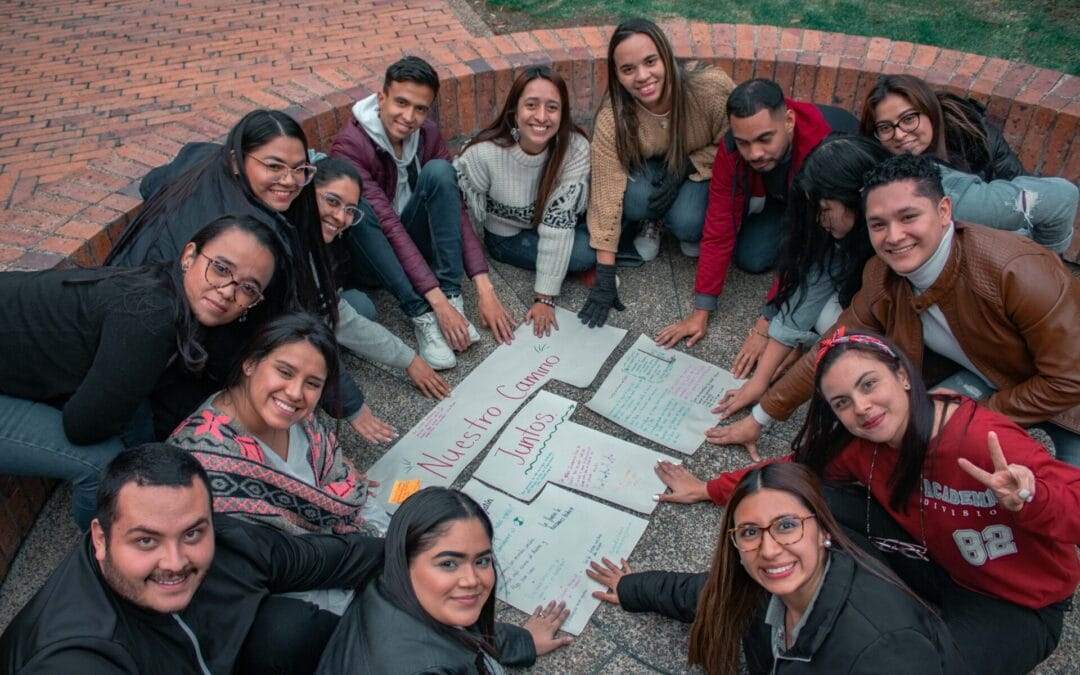
Ikuméni: in search of religious solidarity
Speaking from the stage of the Genfest 2024 in Aparecida, Edy, a Peruvian Catholic, accompanied by 13 other young people from various Christian Churches and Latin American countries, said, “Ikuméni has transformed the way we young people relate to each other, the way we look at each other and how we can have unity in diversity”.
But what is Ikuméni? It is a four-month training course in a leadership style based on the art of hospitality, cooperation and good practice. Edy continued, “A highlight was our final face-to-face meeting”. Pablo, a Salvadoran Lutheran, immediately intervened: “One thing that had a big impact on us was learning to generate cooperation initiatives together, which we call good ecumenical and interreligious practices, working alongside people from different Churches and religions, willing to serve in the challenges we face today in our cities and rural areas.”
Ikuméni offers young people various paths for implementing good practices: this is how initiatives for peacebuilding, conflict resolution, integral ecology and sustainable development, humanitarian issues and resilience have emerged, working together not only with people from different Churches, but also with civil society to care for one another.
“In my case, we started a peace-building initiative in the social sciences faculty of the university where I study,” shared Laura Camila, a Colombian who lives in Buenos Aires and is a member of a Pentecostal ecclesial community. She stressed, “We need to work together for peace, we really need it. So in collaboration with various Churches, initiatives were born to strengthen resilience by creating ecumenical and interreligious networks and workshops for dialogue and training in conflict resolution”.
The Ikuméni training itinerary is a scholarship program and therefore there is no cost for the participants who are selected to participate in the course. It requires a commitment of 4 hours per week and attendance in person at the regional Ikuméni meeting. Young people aged 18-35 years old who have completed secondary education are eligible to participate. It is organized by CREAS (Regional Ecumenical Advisory and Service Centre) with the collaboration of several organizations.
Enrolment is currently open for the 2025 program. All the information is available here: https://ikumeni.org/
Have a look at the video we filmed a few months ago in Buenos Aires during the team meeting.
Carlos Mana
Photo: © Ikuméni
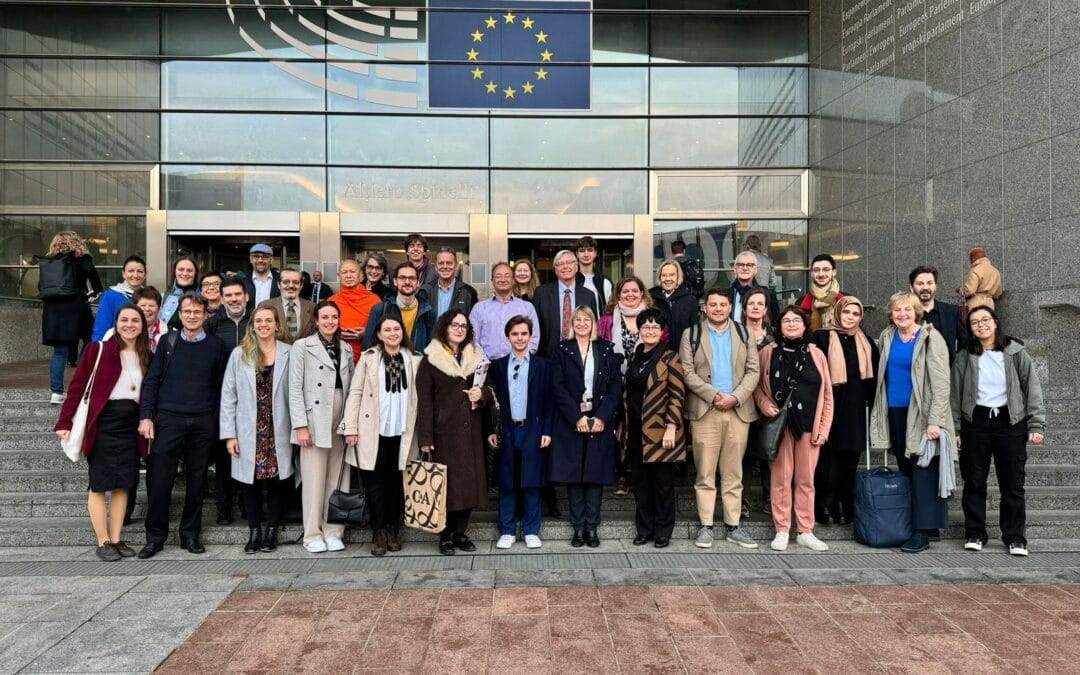
Dialogue is a powerful tool for peace
On October 16, 2024, the final conference of the DialogUE project, an initiative to promote intercultural and interreligious dialogue in Europe, was held at the European Parliament building in Brussels, Belgium. The event was hosted by MEP Catarina Martins (GUE-NGL) and was attended by 50 representatives of the project partners, European institutions, religious leaders and members of civil society.
Focus of the event was the presentation of recommendations for the European Union from the DialogUE project – “Diverse Identities Allied, Open, to Generate a United Europe” on issues crucial to the current European and world situation, summarized in the “DialogUE Kit” brochure.
“You can see with the naked eye that something happens when people of peace talk,” said MEP Catarina Martins of the European Left, who opened the meeting in a hall of the European Parliament. “And this is just such a moment. Dialogue is a powerful tool for peace.”
The project stems from the decades-long commitment of New Humanity, an expression of the Focolare Movement, which has significantly promoted good practices in interreligious and intercultural dialogue. The approach fosters mutual respect and trust, essential elements for fruitful dialogue and collaborative efforts.
Francisco Canzani, general counselor for the Culture and Study area of the Focolare Movement emphasized in his speech that dialogue is built from three elements: attitudes, tools, and method. On the latter, the method of differentiated consensus and qualified dissent, which originated within the platform between Christians and Marxists DIALOP, is now a source of inspiration and practice for other dialogue groups.
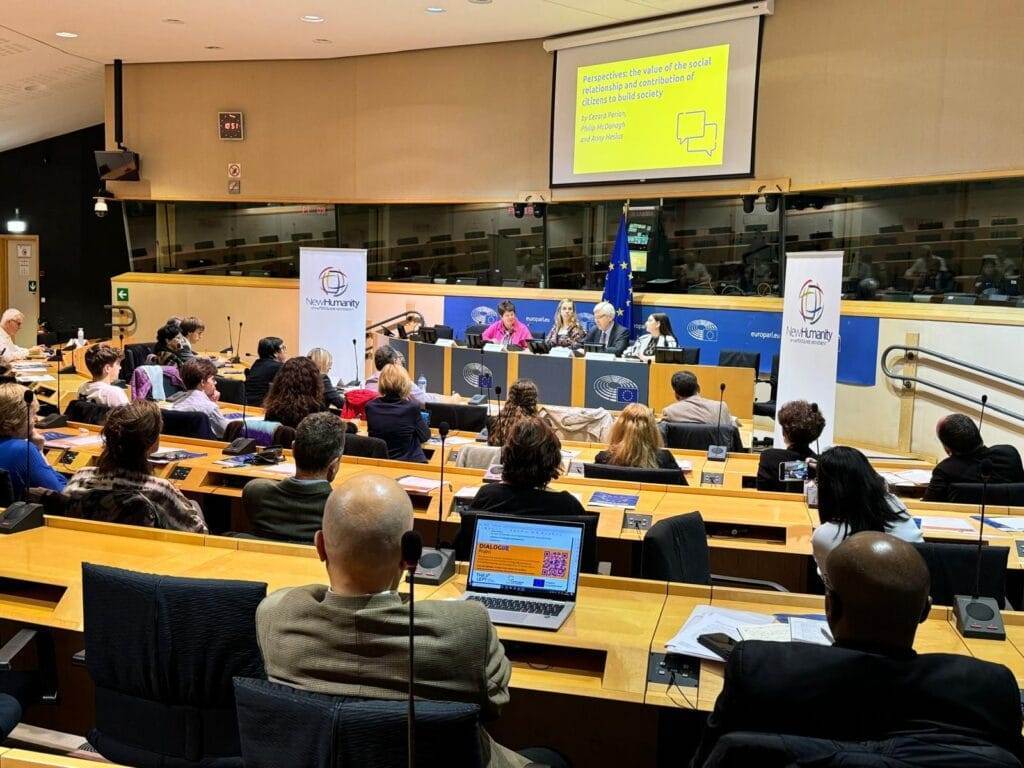
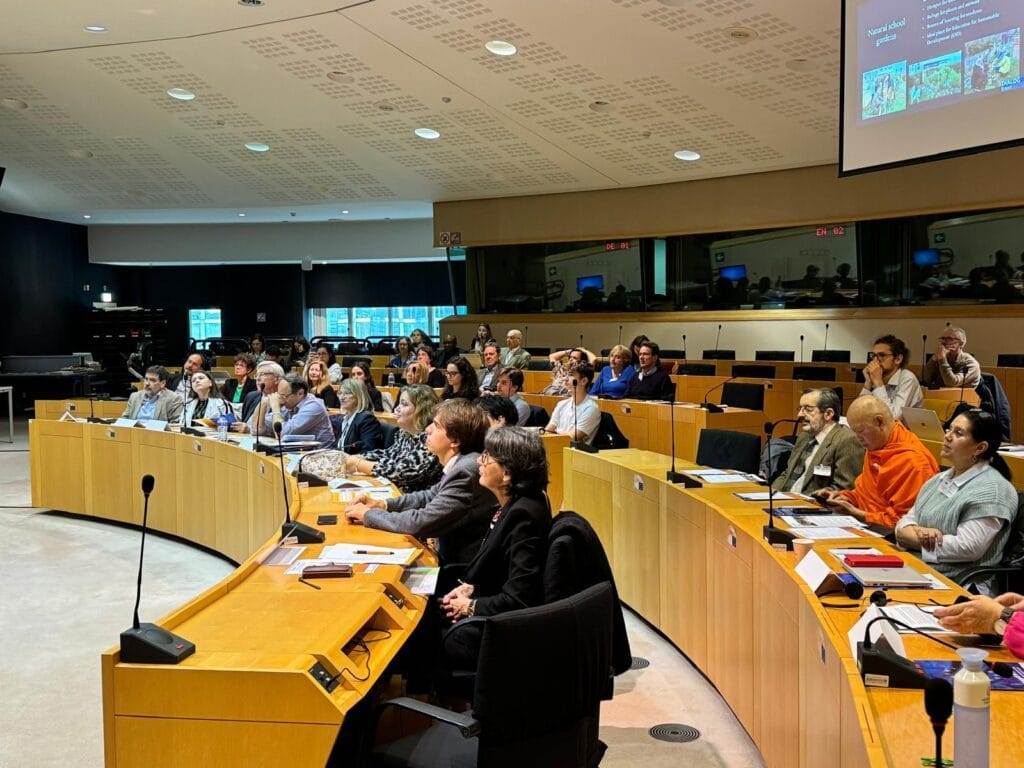
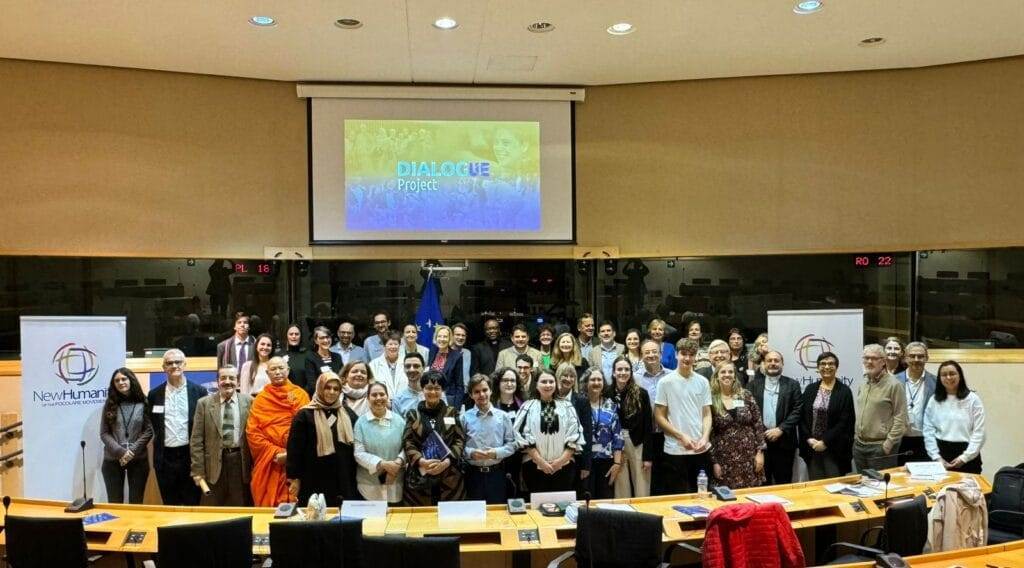
In 2023 and 2024, the project involved 4 dialogue groups in 3 main areas: Communication, Ecology and Social Policy. The dialogue groups were:
- Among Christian citizens through the Together4Europe platform.
- Between Christians and Muslims through the Focolare Movement’s Center for Interreligious Dialogue.
- Between Christians and people who do not identify with a religious belief, through the DIALOP platform for cross-religious dialogue
- Between Western and Eastern European citizens through the Multipolar Dialogue Group.
The project mainly facilitated the dissemination of the meaning and methodologies necessary for effective dialogue. It also brought together international experts on these three key challenges, who helped participants understand the main EU documents on these topics and explore the different dimensions of each theme.
The groups worked together to identify shared principles and common proposals. Their work led to recommendations that were submitted to the European Parliament.
The DialogUE project — was promoted by a consortium of 14 civil society organizations from 9 EU member countries.
Among the main results achieved by the project: 12 international meetings and a training for facilitators and experts; the direct involvement of 1,200 citizens and more than 10,000 indirectly; and the creation of the “Dialogue Kit,” intended for educators, NGOs, and policymakers to promote dialogue and social cohesion. These meetings resulted in shared recommendations for EU decision makers to promote more inclusive and sustainable policies.
In the afternoon of October 16, a discussion group hosted by KU Leuven (University of Leuven) in Brussels was held, during which participants analyzed some good practices that emerged from the project and discussed how to further disseminate these initiatives through the ‘Dialogue Kit.
Ana Clara Giovani – Tomaso Comazzi e Luisa Sello
Photo: ©Marcelo Pardo
For information about the project: https://www.new-humanity.org/en/project/dialogue/
To review the event click here:
